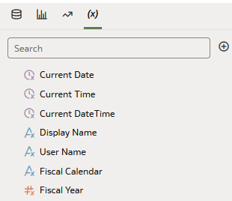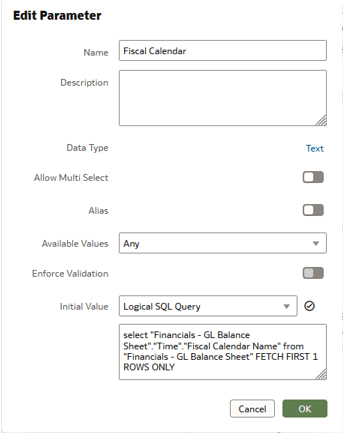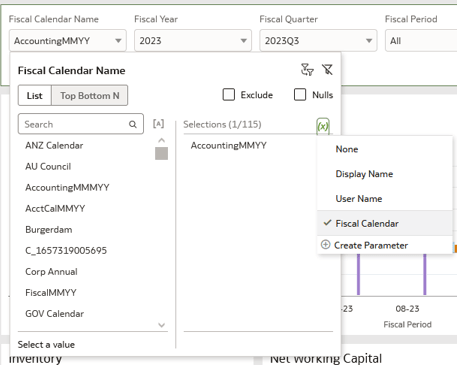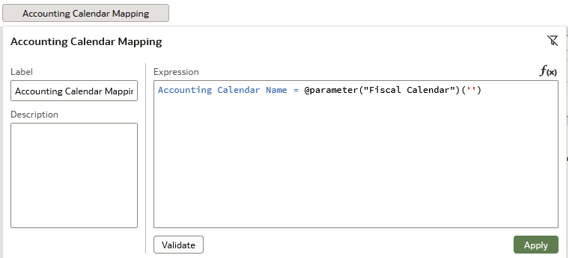Use Parameters in Overview Dashboards
The Overview Dashboards use parameters to populate variables using data referenced in the subject areas.
Beyond the default set of parameters provided, specific parameters in the prebuilt
content have been built to dynamically request values for columns like “Fiscal Calendar”
or “Fiscal Year.” This allows the Overview Dashboards to avoid defaults and retrieve
appropriate values for users. 
- Fiscal
Calendar
SELECT "Financials - GL Balance Sheet"."Time"."Fiscal Calendar Name" from "Financials - GL Balance Sheet" FETCH FIRST 1 ROWS ONLY - Fiscal
Year
SELECT "Financials - GL Balance Sheet"."Time"."Fiscal Year" FROM "Financials - GL Balance Sheet" WHERE ("Financials - GL Balance Sheet"."Time"."Trailing Year Number" = 0 AND "Financials - GL Balance Sheet"."Time"."Fiscal Calendar Name" IN (@parameter("Fiscal Calendar")('')) )
These parameters are then used to populate filters and default values on the Overview Dashboards.
Parameter Binding
A dashboard filter can be bound to a parameter. In this case, the “Fiscal
Calendar Name” dashboard filter is then populated by the “Fiscal Calendar”
parameter. 
Role-playing Parameters
Usually a filter affects only one column, but in the case of
role-playing parameters the filter effectively "impersonates" multiple columns. In
some cases an Overview Dashboard is built so that the values selected in a single
dashboard filter can be propagated to more than one subject area column. This works
best if each of these columns has the same set of values. For this use case, a
Workbook Filter is used to map multiple columns to a parameter. For example, in this
case the “Accounting Calendar Name” columns will be populated by the “Fiscal
Calendar” parameter. As mentioned in the "Parameter Binding" section, the “Fiscal
Calendar” parameter also populates “Fiscal Calendar Name.” Using this dashboard
filter would update both columns. Here's the Workbook Filter where the mapping is
specified: